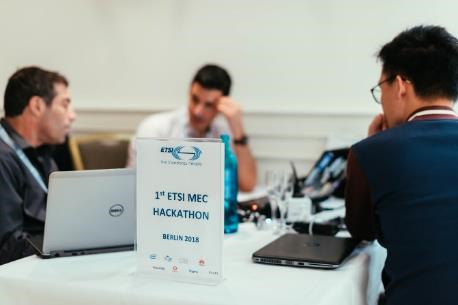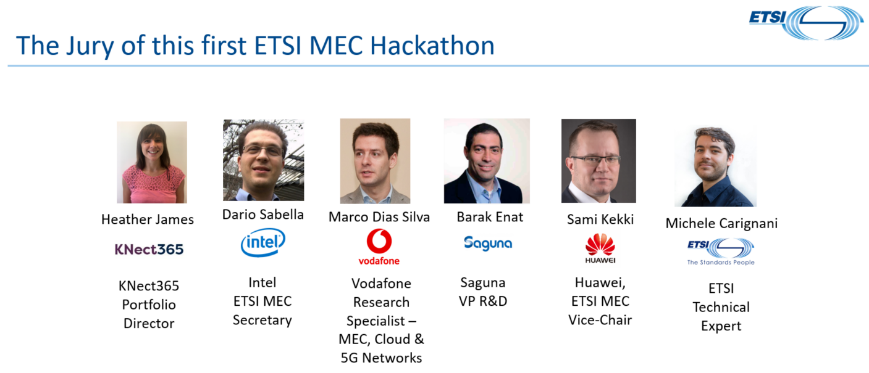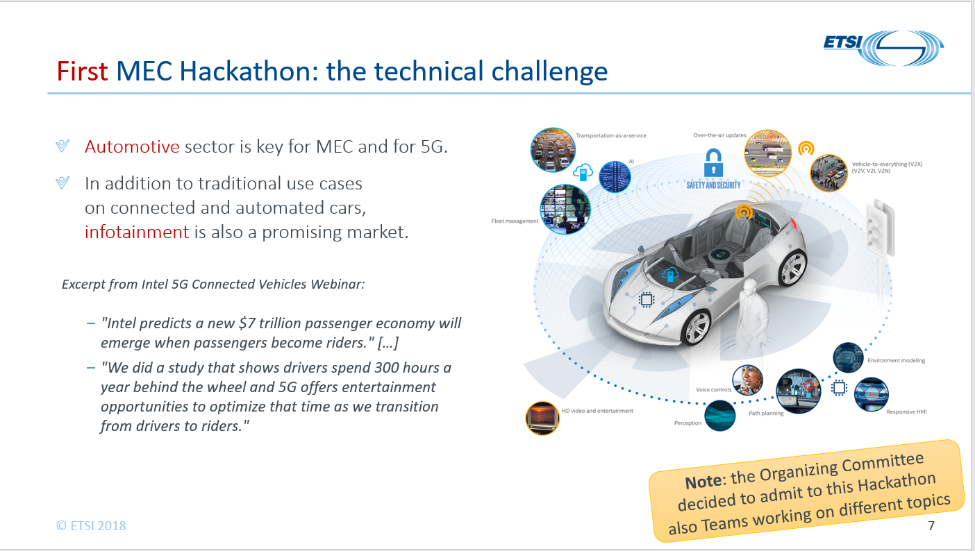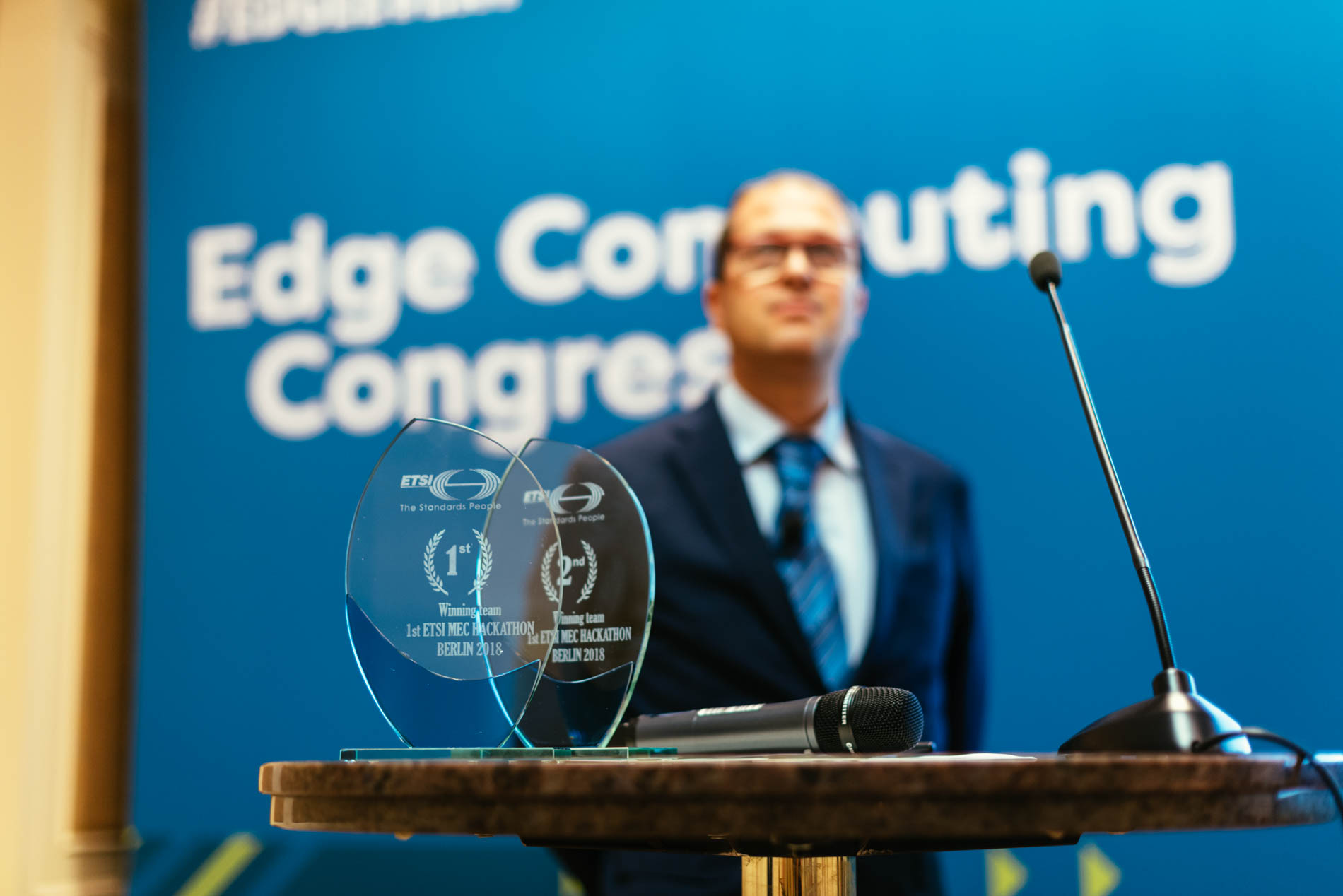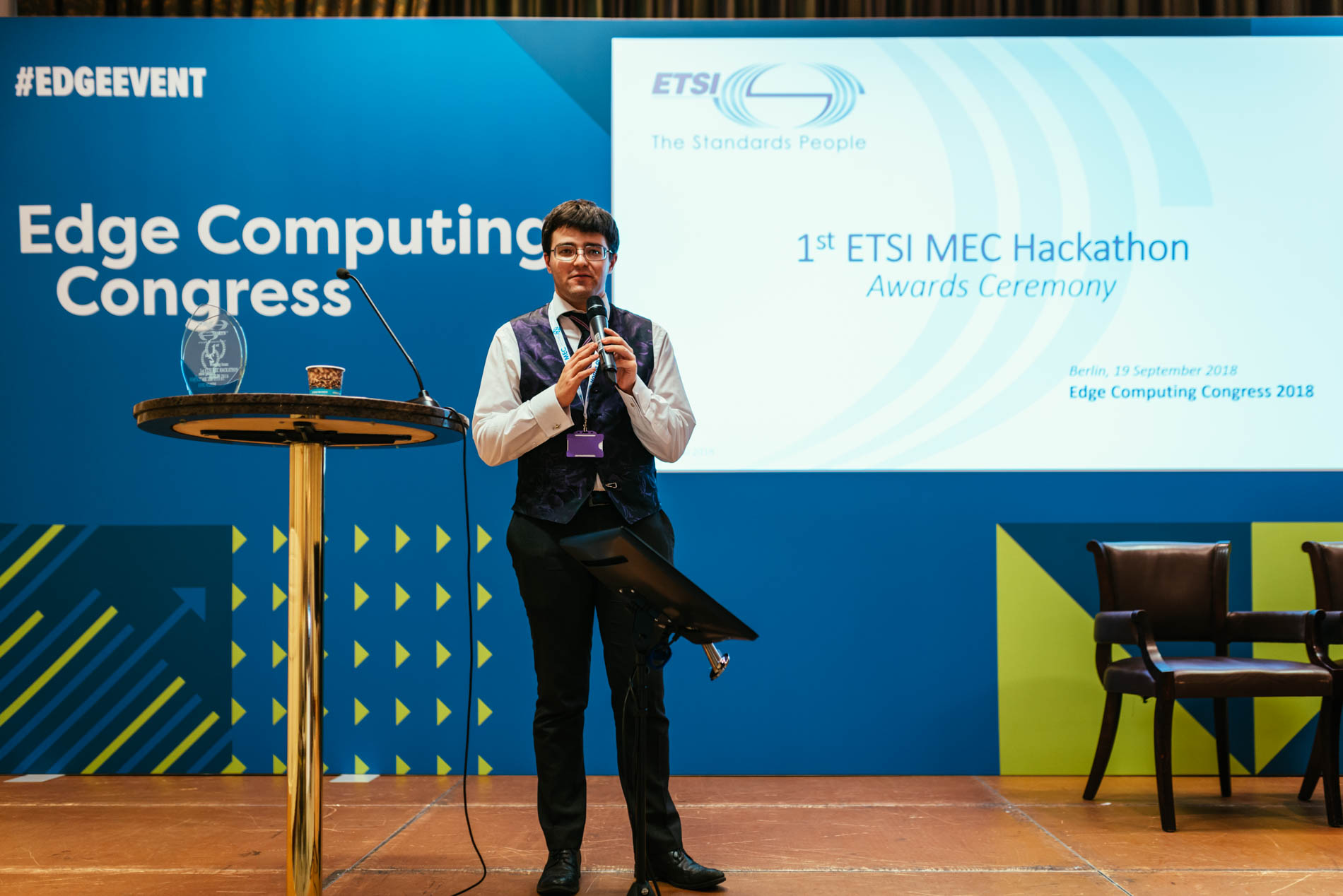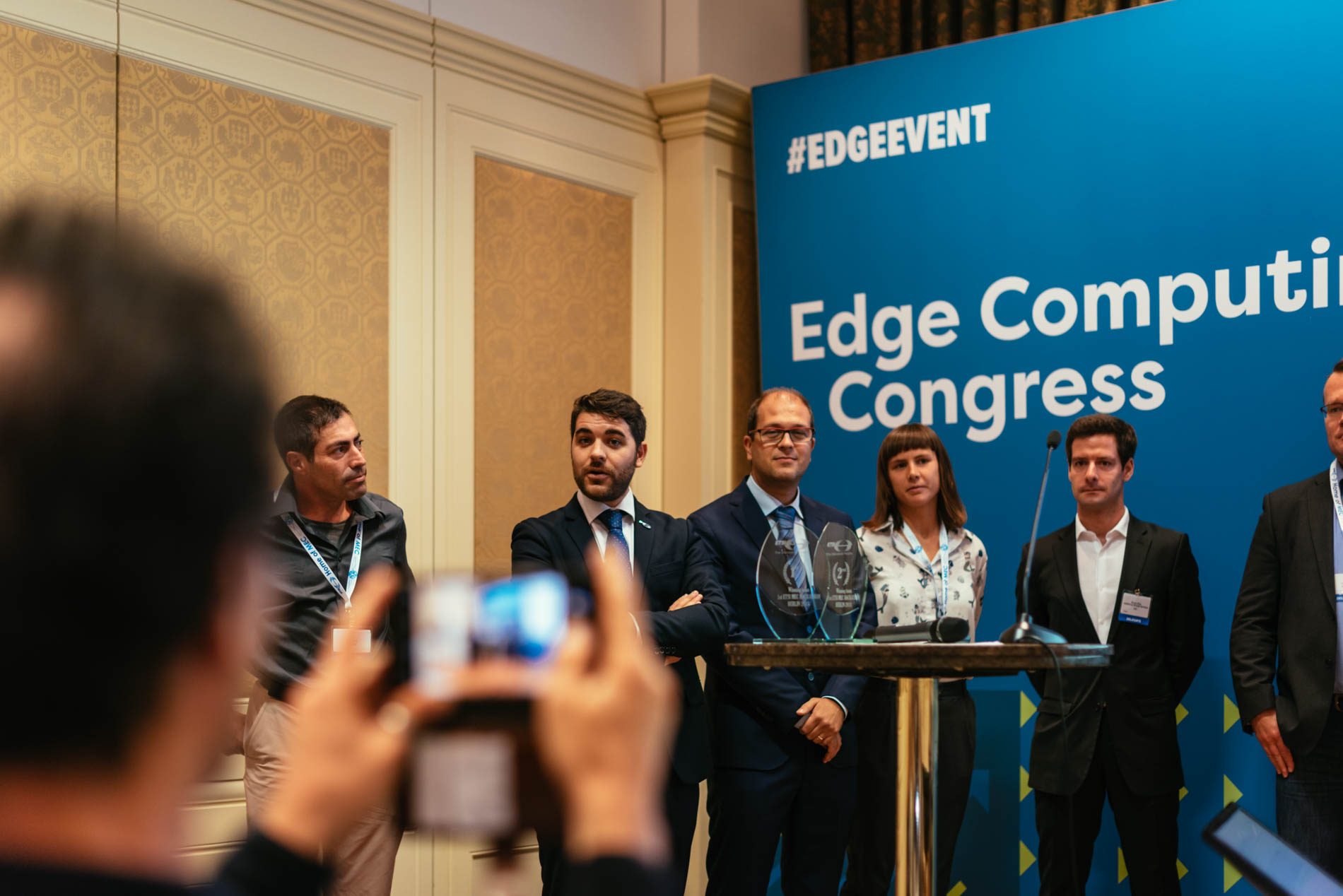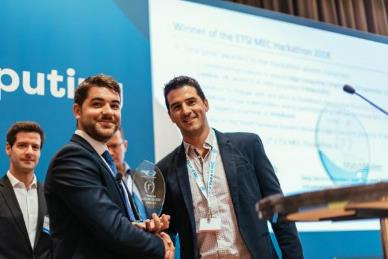MEC Hackathon 2018: Difference between revisions
No edit summary |
No edit summary |
||
| Line 11: | Line 11: | ||
The organizing committee called for developers in Edge Computing and 5G to submit their teams to participate in a competition developing advanced mobile applications for automotive infotainment services in ETSI MEC-enabled 5G networks. | The organizing committee called for developers in Edge Computing and 5G to submit their teams to participate in a competition developing advanced mobile applications for automotive infotainment services in ETSI MEC-enabled 5G networks. | ||
The competitors were asked to develop Entertainment and/or VR/AR applications (“EVA apps”), as in-car mobile solutions using ETSI MEC technologies for riders. | The competitors were asked to develop Entertainment and/or VR/AR applications (“EVA apps”), as in-car mobile solutions using ETSI MEC technologies for riders. | ||
[[File:2018-hack-details.png|500px|center|top|class=img-responsive]] | |||
__TOC__ | __TOC__ | ||
| Line 21: | Line 21: | ||
=== Hackathon phases: === | === Hackathon phases: === | ||
* Call-for-developers: [https://www.etsi.org/images/files/Events/2018/1st_ETSI_MEC_HACKATHON/1st_ETSI_MEC_Hackathon_Call_for_Developers.pdf here] | |||
* YouTube videoclip showing the usage of MEC APIs: [https://youtu.be/jiXun7NiQgg https://youtu.be/jiXun7NiQgg ] | |||
* Example of MEC Case Study provided to developers: [https://forge.etsi.org/mec/mec_case_study.PDF here] | |||
* Q&A on MEC Hackathon 2018: [https://wiki.plugtests.net/MECHackathon1/index.php/FAQ here] | |||
<br> | |||
=== Jury members === | === Jury members === | ||
[[File:2018-hack-jury.png|800px|center|top|class=img-responsive]] | [[File:2018-hack-jury.png|800px|center|top|class=img-responsive]] | ||
| Line 47: | Line 52: | ||
</div><!-- End of row 1--> | </div><!-- End of row 1--> | ||
[[File:2018_MEC_hackathon_berlin_-_jury.jpg|400px|center|top|class=img-responsive]] | [[File:2018_MEC_hackathon_berlin_-_jury.jpg|400px|center|top|class=img-responsive]] | ||
<br> | |||
=== Winner team === | === Winner team === | ||
The winner, EDGEGAP, proposed a solution for real-time optimization of multi-player games. This was installed on two MEC platforms – Saguna, based on virtual machines, and Huawei, based on containers – demonstrating the portability of MEC apps. | |||
[[File:2018-hack-winner.png|400px|center|top|class=img-responsive]] | |||
<br> | |||
{{#evu:https://www.youtube.com/watch?app=desktop&v=o9mqc0jcBRc&feature=youtu.be | |||
|alignment=center | |||
|dimensions="120" | |||
}} | |||
<br> | |||
Latest revision as of 13:00, 3 December 2021
Organization
Details
ETSI together with its partners organized the 1st ETSI MEC Hackathon in Berlin during the Edge Computing Congress organized by KNect365 from 18 to 20 September 2018. The organizing committee called for developers in Edge Computing and 5G to submit their teams to participate in a competition developing advanced mobile applications for automotive infotainment services in ETSI MEC-enabled 5G networks. The competitors were asked to develop Entertainment and/or VR/AR applications (“EVA apps”), as in-car mobile solutions using ETSI MEC technologies for riders.
Supporting organizations
Hackathon phases:
- Call-for-developers: here
- YouTube videoclip showing the usage of MEC APIs: https://youtu.be/jiXun7NiQgg
- Example of MEC Case Study provided to developers: here
- Q&A on MEC Hackathon 2018: here
Jury members
Technical challenge
Awards
Prizegiving day
Winner team
The winner, EDGEGAP, proposed a solution for real-time optimization of multi-player games. This was installed on two MEC platforms – Saguna, based on virtual machines, and Huawei, based on containers – demonstrating the portability of MEC apps.

